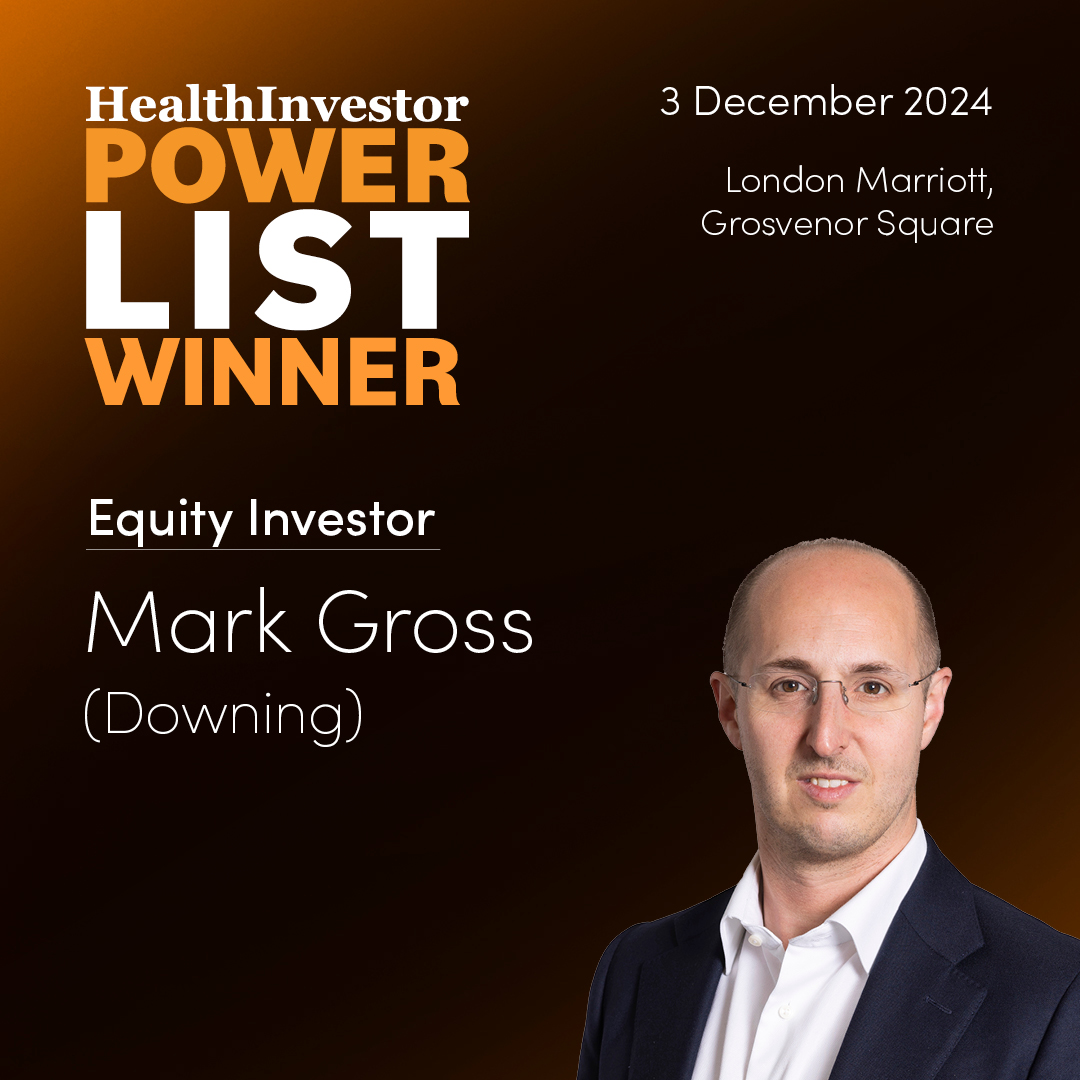2023 outlook: The transformative trends driving health and social care investing

Transformative trends accelerated by the Covid-19 pandemic are reshaping health and social care investing. From increased governmental support to a greater focus on ESG, Mark Gross, Partner at Downing, assesses the emerging themes that will define capital allocation in the asset-backed health and social care sector during 2023 and beyond.

Institutions to dial-up asset-backed alternatives exposure
2022 saw a significant shift in global monetary regimes. Inflation, stiff economic headwinds and deep structural changes have contributed to investors assessing their asset class options. In 2023, as investors increase exposure to asset-back alternatives against an uncertain backdrop, we expect investor interest in health and social care to remain strong.
Health and social care’s lower cyclicality and defensive characteristics are supported by a range of secular growth trends, including demographic shifts. This has led to a consensus among institutional investors that they will increase their exposure to the sector.
A recent survey on social care investing, commissioned by Downing LLP, showed that UK institutional investors are increasingly recognising the multiple benefits of investing in this area. From the pool of pension scheme respondents, 84% expect institutional investors to increase their exposure to the social care sector.
Government to focus support on social care
The social care sector is under pressure from the weight of growing demand, funding shortfalls and a lack of supply of modern, fit-for-purpose accommodation.
The government had already signalled it is putting its weight behind reform with the announcement of a Health and Social Care Levy. But Prime Minister Rishi Sunak pledged a grander commitment in his opening 2023 speech, stating that plans were in train for an overhaul of health and social care, including specific measures around social care. He also underlined that moving people, where needed, into community-based care was a priority.
While this is encouraging for the sector in the long term, the reality is that the sheer gravity of the shortfall means there is likely to be a gap in provision for the foreseeable future. For example, in the elderly care sector the current statistical oversupply of beds includes older-generation care homes that are suboptimal in size and vary in quality. With continued home closures, supply is not keeping pace with the demand from an ageing population, resulting in a heightened demand for modern, purpose-built facilities. Similarly, when looking at the special educational needs sector there is a noticeable shortfall in high-quality places. Finally, specialist care is experiencing a shift away from residential specialist care to supported living, yet there is home shortfall in appropriate and high-quality supported living settings. All these factors contribute to the deepening of social care’s defensive attributes as an asset class.
This could emerge as a major opportunity for social care investors with a deep understanding of niche and local markets – and with the ability and experience to access or create high-quality management teams.
Addressing an ageing demographic and unmet demand
The health and social care industry presents unique investment opportunities, but also profound challenges. For example, according to Age UK there are 1.6 million people aged 65 and over that don’t receive the support they need for essential living.
The current demand dynamics are also pushing the government to prioritise care for people with complex needs and higher acuities – which presents another opportunity. For example, in response to the growing number of people living with dementia, specialist care units are being established with dementia-friendly designs to create a more calming environment for residents. The bottom line is that more specialised care services will be created to address the differing needs of an ageing population.

Meanwhile, a recent major study by social care regulator Ofsted reported that children with Special Education Needs and/or Disabilities (SEND) were not getting enough help to support their development. The UK has a statutory obligation to provide for those adults and children with identified health and education needs.
In the meantime, private capital is helping to bridge the gap in provision. Care Concern is a leading provider in the elderly residential care market and focuses on creating market-leading homes that deliver high-quality care. Through private capital investment, Care Concern has evolved into one of the leading mid-market operators and now has homes across England, Scotland and Wales.
ESG at the forefront of social care investing
Investing in the social care sector has traditionally been considered an inherently ESG-friendly investment, given the societal benefits and alignment with the UN’s Sustainable Development Goals (SDGs) framework – which includes health and well-being. We believe this is now turning into consensus thinking and will be at the forefront of investors’ minds in 2023.
For example, from an environmental perspective, capital is being directed to the health and social care sector to offer housing and facilities that can be adapted through their lifetimes. If health and social care providers can implement a drive towards zero-carbon buildings, they can create truly long-term sustainable solutions.
Social impact ranges from providing a good standard of regulatory care to creating new or sustainable employment in high-quality care settings. Good-quality employment has a multiplier impact on local communities, from financial resilience to greater well-being.
We are also witnessing an evolution in how institutional investors are thinking about ESG investing. The increased focus on ‘S’ is hugely encouraging, and, as part of a virtuous circle, should influence the way social care businesses are run in the future. In our social care report, 54% of investors believe the sector is set to benefit from investors switching their focus to the ‘S’ in ESG investing.
ESG should be viewed as integral to any high-quality care provider’s strategy – as it not only delivers better outcomes for service users but has myriad mutual benefits for all stakeholders, from local communities to investors.
More investors are seeing the opportunity to access third-party specialist investment teams that can partner with highly experienced management teams in the sector.
In health and social care, putting in place management teams that have a strong understanding of local market dynamics and the requisite expertise to operate high-quality assets, continues to be the best way of generating attractive long-term sustainable returns with strong downside protection, avoiding reputational risk and creating a positive social impact.
Click here to find out more about Downing's activities within the social care sector
Transformative trends accelerated by the Covid-19 pandemic are reshaping health and social care investing. From increased governmental support to a greater focus on ESG, Mark Gross, Partner at Downing, assesses the emerging themes that will define capital allocation in the asset-backed health and social care sector during 2023 and beyond.

Institutions to dial-up asset-backed alternatives exposure
2022 saw a significant shift in global monetary regimes. Inflation, stiff economic headwinds and deep structural changes have contributed to investors assessing their asset class options. In 2023, as investors increase exposure to asset-back alternatives against an uncertain backdrop, we expect investor interest in health and social care to remain strong.
Health and social care’s lower cyclicality and defensive characteristics are supported by a range of secular growth trends, including demographic shifts. This has led to a consensus among institutional investors that they will increase their exposure to the sector.
A recent survey on social care investing, commissioned by Downing LLP, showed that UK institutional investors are increasingly recognising the multiple benefits of investing in this area. From the pool of pension scheme respondents, 84% expect institutional investors to increase their exposure to the social care sector.
Government to focus support on social care
The social care sector is under pressure from the weight of growing demand, funding shortfalls and a lack of supply of modern, fit-for-purpose accommodation.
The government had already signalled it is putting its weight behind reform with the announcement of a Health and Social Care Levy. But Prime Minister Rishi Sunak pledged a grander commitment in his opening 2023 speech, stating that plans were in train for an overhaul of health and social care, including specific measures around social care. He also underlined that moving people, where needed, into community-based care was a priority.
While this is encouraging for the sector in the long term, the reality is that the sheer gravity of the shortfall means there is likely to be a gap in provision for the foreseeable future. For example, in the elderly care sector the current statistical oversupply of beds includes older-generation care homes that are suboptimal in size and vary in quality. With continued home closures, supply is not keeping pace with the demand from an ageing population, resulting in a heightened demand for modern, purpose-built facilities. Similarly, when looking at the special educational needs sector there is a noticeable shortfall in high-quality places. Finally, specialist care is experiencing a shift away from residential specialist care to supported living, yet there is home shortfall in appropriate and high-quality supported living settings. All these factors contribute to the deepening of social care’s defensive attributes as an asset class.
This could emerge as a major opportunity for social care investors with a deep understanding of niche and local markets – and with the ability and experience to access or create high-quality management teams.
Addressing an ageing demographic and unmet demand
The health and social care industry presents unique investment opportunities, but also profound challenges. For example, according to Age UK there are 1.6 million people aged 65 and over that don’t receive the support they need for essential living.
The current demand dynamics are also pushing the government to prioritise care for people with complex needs and higher acuities – which presents another opportunity. For example, in response to the growing number of people living with dementia, specialist care units are being established with dementia-friendly designs to create a more calming environment for residents. The bottom line is that more specialised care services will be created to address the differing needs of an ageing population.

Meanwhile, a recent major study by social care regulator Ofsted reported that children with Special Education Needs and/or Disabilities (SEND) were not getting enough help to support their development. The UK has a statutory obligation to provide for those adults and children with identified health and education needs.
In the meantime, private capital is helping to bridge the gap in provision. Care Concern is a leading provider in the elderly residential care market and focuses on creating market-leading homes that deliver high-quality care. Through private capital investment, Care Concern has evolved into one of the leading mid-market operators and now has homes across England, Scotland and Wales.
ESG at the forefront of social care investing
Investing in the social care sector has traditionally been considered an inherently ESG-friendly investment, given the societal benefits and alignment with the UN’s Sustainable Development Goals (SDGs) framework – which includes health and well-being. We believe this is now turning into consensus thinking and will be at the forefront of investors’ minds in 2023.
For example, from an environmental perspective, capital is being directed to the health and social care sector to offer housing and facilities that can be adapted through their lifetimes. If health and social care providers can implement a drive towards zero-carbon buildings, they can create truly long-term sustainable solutions.
Social impact ranges from providing a good standard of regulatory care to creating new or sustainable employment in high-quality care settings. Good-quality employment has a multiplier impact on local communities, from financial resilience to greater well-being.
We are also witnessing an evolution in how institutional investors are thinking about ESG investing. The increased focus on ‘S’ is hugely encouraging, and, as part of a virtuous circle, should influence the way social care businesses are run in the future. In our social care report, 54% of investors believe the sector is set to benefit from investors switching their focus to the ‘S’ in ESG investing.
ESG should be viewed as integral to any high-quality care provider’s strategy – as it not only delivers better outcomes for service users but has myriad mutual benefits for all stakeholders, from local communities to investors.
More investors are seeing the opportunity to access third-party specialist investment teams that can partner with highly experienced management teams in the sector.
In health and social care, putting in place management teams that have a strong understanding of local market dynamics and the requisite expertise to operate high-quality assets, continues to be the best way of generating attractive long-term sustainable returns with strong downside protection, avoiding reputational risk and creating a positive social impact.
Click here to find out more about Downing's activities within the social care sector
Transformative trends accelerated by the Covid-19 pandemic are reshaping health and social care investing. From increased governmental support to a greater focus on ESG, Mark Gross, Partner at Downing, assesses the emerging themes that will define capital allocation in the asset-backed health and social care sector during 2023 and beyond.

Institutions to dial-up asset-backed alternatives exposure
2022 saw a significant shift in global monetary regimes. Inflation, stiff economic headwinds and deep structural changes have contributed to investors assessing their asset class options. In 2023, as investors increase exposure to asset-back alternatives against an uncertain backdrop, we expect investor interest in health and social care to remain strong.
Health and social care’s lower cyclicality and defensive characteristics are supported by a range of secular growth trends, including demographic shifts. This has led to a consensus among institutional investors that they will increase their exposure to the sector.
A recent survey on social care investing, commissioned by Downing LLP, showed that UK institutional investors are increasingly recognising the multiple benefits of investing in this area. From the pool of pension scheme respondents, 84% expect institutional investors to increase their exposure to the social care sector.
Government to focus support on social care
The social care sector is under pressure from the weight of growing demand, funding shortfalls and a lack of supply of modern, fit-for-purpose accommodation.
The government had already signalled it is putting its weight behind reform with the announcement of a Health and Social Care Levy. But Prime Minister Rishi Sunak pledged a grander commitment in his opening 2023 speech, stating that plans were in train for an overhaul of health and social care, including specific measures around social care. He also underlined that moving people, where needed, into community-based care was a priority.
While this is encouraging for the sector in the long term, the reality is that the sheer gravity of the shortfall means there is likely to be a gap in provision for the foreseeable future. For example, in the elderly care sector the current statistical oversupply of beds includes older-generation care homes that are suboptimal in size and vary in quality. With continued home closures, supply is not keeping pace with the demand from an ageing population, resulting in a heightened demand for modern, purpose-built facilities. Similarly, when looking at the special educational needs sector there is a noticeable shortfall in high-quality places. Finally, specialist care is experiencing a shift away from residential specialist care to supported living, yet there is home shortfall in appropriate and high-quality supported living settings. All these factors contribute to the deepening of social care’s defensive attributes as an asset class.
This could emerge as a major opportunity for social care investors with a deep understanding of niche and local markets – and with the ability and experience to access or create high-quality management teams.
Addressing an ageing demographic and unmet demand
The health and social care industry presents unique investment opportunities, but also profound challenges. For example, according to Age UK there are 1.6 million people aged 65 and over that don’t receive the support they need for essential living.
The current demand dynamics are also pushing the government to prioritise care for people with complex needs and higher acuities – which presents another opportunity. For example, in response to the growing number of people living with dementia, specialist care units are being established with dementia-friendly designs to create a more calming environment for residents. The bottom line is that more specialised care services will be created to address the differing needs of an ageing population.

Meanwhile, a recent major study by social care regulator Ofsted reported that children with Special Education Needs and/or Disabilities (SEND) were not getting enough help to support their development. The UK has a statutory obligation to provide for those adults and children with identified health and education needs.
In the meantime, private capital is helping to bridge the gap in provision. Care Concern is a leading provider in the elderly residential care market and focuses on creating market-leading homes that deliver high-quality care. Through private capital investment, Care Concern has evolved into one of the leading mid-market operators and now has homes across England, Scotland and Wales.
ESG at the forefront of social care investing
Investing in the social care sector has traditionally been considered an inherently ESG-friendly investment, given the societal benefits and alignment with the UN’s Sustainable Development Goals (SDGs) framework – which includes health and well-being. We believe this is now turning into consensus thinking and will be at the forefront of investors’ minds in 2023.
For example, from an environmental perspective, capital is being directed to the health and social care sector to offer housing and facilities that can be adapted through their lifetimes. If health and social care providers can implement a drive towards zero-carbon buildings, they can create truly long-term sustainable solutions.
Social impact ranges from providing a good standard of regulatory care to creating new or sustainable employment in high-quality care settings. Good-quality employment has a multiplier impact on local communities, from financial resilience to greater well-being.
We are also witnessing an evolution in how institutional investors are thinking about ESG investing. The increased focus on ‘S’ is hugely encouraging, and, as part of a virtuous circle, should influence the way social care businesses are run in the future. In our social care report, 54% of investors believe the sector is set to benefit from investors switching their focus to the ‘S’ in ESG investing.
ESG should be viewed as integral to any high-quality care provider’s strategy – as it not only delivers better outcomes for service users but has myriad mutual benefits for all stakeholders, from local communities to investors.
More investors are seeing the opportunity to access third-party specialist investment teams that can partner with highly experienced management teams in the sector.
In health and social care, putting in place management teams that have a strong understanding of local market dynamics and the requisite expertise to operate high-quality assets, continues to be the best way of generating attractive long-term sustainable returns with strong downside protection, avoiding reputational risk and creating a positive social impact.
Click here to find out more about Downing's activities within the social care sector
Transformative trends accelerated by the Covid-19 pandemic are reshaping health and social care investing. From increased governmental support to a greater focus on ESG, Mark Gross, Partner at Downing, assesses the emerging themes that will define capital allocation in the asset-backed health and social care sector during 2023 and beyond.

Institutions to dial-up asset-backed alternatives exposure
2022 saw a significant shift in global monetary regimes. Inflation, stiff economic headwinds and deep structural changes have contributed to investors assessing their asset class options. In 2023, as investors increase exposure to asset-back alternatives against an uncertain backdrop, we expect investor interest in health and social care to remain strong.
Health and social care’s lower cyclicality and defensive characteristics are supported by a range of secular growth trends, including demographic shifts. This has led to a consensus among institutional investors that they will increase their exposure to the sector.
A recent survey on social care investing, commissioned by Downing LLP, showed that UK institutional investors are increasingly recognising the multiple benefits of investing in this area. From the pool of pension scheme respondents, 84% expect institutional investors to increase their exposure to the social care sector.
Government to focus support on social care
The social care sector is under pressure from the weight of growing demand, funding shortfalls and a lack of supply of modern, fit-for-purpose accommodation.
The government had already signalled it is putting its weight behind reform with the announcement of a Health and Social Care Levy. But Prime Minister Rishi Sunak pledged a grander commitment in his opening 2023 speech, stating that plans were in train for an overhaul of health and social care, including specific measures around social care. He also underlined that moving people, where needed, into community-based care was a priority.
While this is encouraging for the sector in the long term, the reality is that the sheer gravity of the shortfall means there is likely to be a gap in provision for the foreseeable future. For example, in the elderly care sector the current statistical oversupply of beds includes older-generation care homes that are suboptimal in size and vary in quality. With continued home closures, supply is not keeping pace with the demand from an ageing population, resulting in a heightened demand for modern, purpose-built facilities. Similarly, when looking at the special educational needs sector there is a noticeable shortfall in high-quality places. Finally, specialist care is experiencing a shift away from residential specialist care to supported living, yet there is home shortfall in appropriate and high-quality supported living settings. All these factors contribute to the deepening of social care’s defensive attributes as an asset class.
This could emerge as a major opportunity for social care investors with a deep understanding of niche and local markets – and with the ability and experience to access or create high-quality management teams.
Addressing an ageing demographic and unmet demand
The health and social care industry presents unique investment opportunities, but also profound challenges. For example, according to Age UK there are 1.6 million people aged 65 and over that don’t receive the support they need for essential living.
The current demand dynamics are also pushing the government to prioritise care for people with complex needs and higher acuities – which presents another opportunity. For example, in response to the growing number of people living with dementia, specialist care units are being established with dementia-friendly designs to create a more calming environment for residents. The bottom line is that more specialised care services will be created to address the differing needs of an ageing population.

Meanwhile, a recent major study by social care regulator Ofsted reported that children with Special Education Needs and/or Disabilities (SEND) were not getting enough help to support their development. The UK has a statutory obligation to provide for those adults and children with identified health and education needs.
In the meantime, private capital is helping to bridge the gap in provision. Care Concern is a leading provider in the elderly residential care market and focuses on creating market-leading homes that deliver high-quality care. Through private capital investment, Care Concern has evolved into one of the leading mid-market operators and now has homes across England, Scotland and Wales.
ESG at the forefront of social care investing
Investing in the social care sector has traditionally been considered an inherently ESG-friendly investment, given the societal benefits and alignment with the UN’s Sustainable Development Goals (SDGs) framework – which includes health and well-being. We believe this is now turning into consensus thinking and will be at the forefront of investors’ minds in 2023.
For example, from an environmental perspective, capital is being directed to the health and social care sector to offer housing and facilities that can be adapted through their lifetimes. If health and social care providers can implement a drive towards zero-carbon buildings, they can create truly long-term sustainable solutions.
Social impact ranges from providing a good standard of regulatory care to creating new or sustainable employment in high-quality care settings. Good-quality employment has a multiplier impact on local communities, from financial resilience to greater well-being.
We are also witnessing an evolution in how institutional investors are thinking about ESG investing. The increased focus on ‘S’ is hugely encouraging, and, as part of a virtuous circle, should influence the way social care businesses are run in the future. In our social care report, 54% of investors believe the sector is set to benefit from investors switching their focus to the ‘S’ in ESG investing.
ESG should be viewed as integral to any high-quality care provider’s strategy – as it not only delivers better outcomes for service users but has myriad mutual benefits for all stakeholders, from local communities to investors.
More investors are seeing the opportunity to access third-party specialist investment teams that can partner with highly experienced management teams in the sector.
In health and social care, putting in place management teams that have a strong understanding of local market dynamics and the requisite expertise to operate high-quality assets, continues to be the best way of generating attractive long-term sustainable returns with strong downside protection, avoiding reputational risk and creating a positive social impact.
Click here to find out more about Downing's activities within the social care sector

Please fill out the form to download the full report
Downing LLP does not provide advice or make personal recommendations and investors are strongly urged to seek independent advice before investing. Investments offered on this website carry a higher risk than many other types of investment and prospective investors should be aware that capital is at risk and the value of their investment may go down as well as up. Any investment should only be made on the basis of the relevant product literature and your attention is drawn to the risk, fees and taxation factors contained therein. Tax treatment depends on individual circumstances of each investor and may be subject to change in the future. Past performance is not a reliable indicator of future performance. Downing LLP is authorised and regulated by the Financial Conduct Authority (Firm Reference Number 545025). Registered in England No. OC341575. Registered Office: Downing, 10 Lower Thames Street, London, EC3R 6AF.










